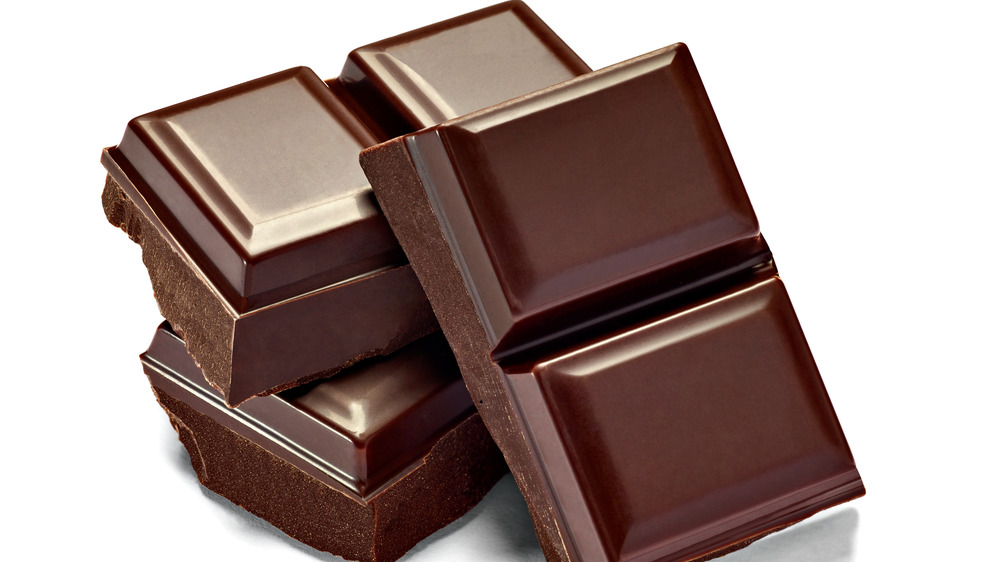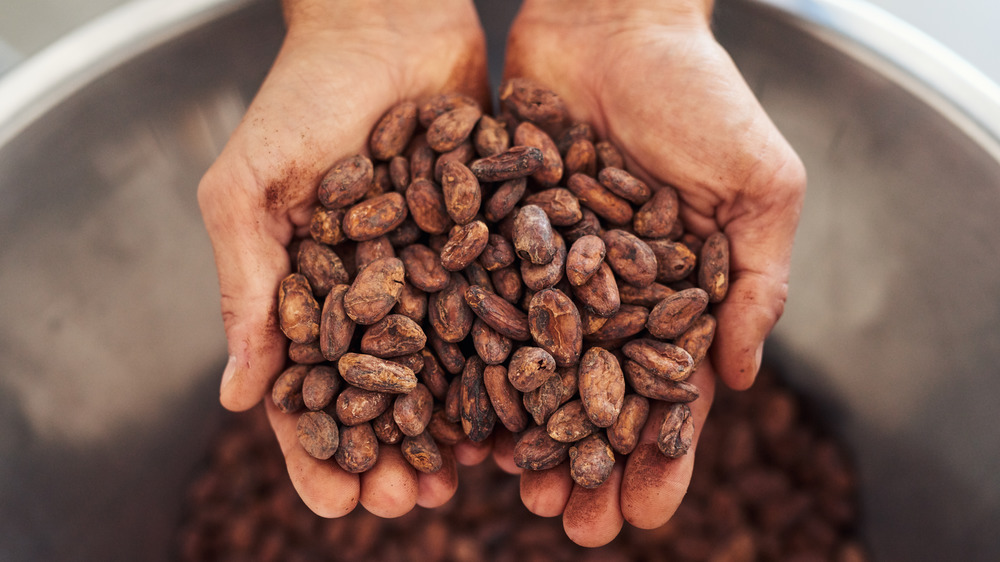Your Dark Chocolate Might Not Be As Dark As You Think. Here's Why
Chocolate preferences are a personal thing. Whether you typically go for a dark and intense 70 percent bar or a sweet and satisfying 40, you probably have at least some idea what that number on the side of your snack means. But do you really?
According to Business Insider, the cacao percentage of a piece of chocolate refers to how much of the bar is "from pure cocoa beans." However, it's not quite as simple as that. In the context of candy, the "cacao" doesn't simply refer to cocoa solids — the part that gives chocolate its flavor; it also includes cocoa butter, the fat from the bean that gives the bar its creamy texture. That's the reason two bars with the same cacao percentage can taste so different: They could have completely different proportions of fat and solids. Unfortunately, this means your favorite extra-dark chocolate might not be as dark as you think.
Of course, cocoa butter is vital to making the chocolate we love taste like chocolate (instead of like, say, cacao nibs). But what does this mean about the touted health benefits of this supposed superfood?
Why dark chocolate isn't as healthy as you think
We've all seen articles around the internet praising the research-based health benefits of chocolate. It's important to scrutinize those articles, however, before allowing them to have an impact on the amount you eat something like candy. For instance, back in 2018 Vox did an exposé on how the Mars candy company (responsible for Snickers bars) sponsored not just one, but hundreds of scientific studies into the potential benefits of chocolate.
Not only that, but most of the research that is done is then spun into the flashy headlines you see popping up online. For instance, claims you might see about chocolate, like that it could increase cardiovascular health, often aren't about chocolate at all, but rather the flavanols in the cocoa beans that are then made into chocolate (via The Washington Post). And, according to professor of food and nutrition studies Marion Nestle (no relation to the company), the amount of flavonols in your chocolate bar, even a dark chocolate, aren't going to be nearly enough to have an impact on your health unless you eat a huge amount, which wouldn't be healthy either, since the remaining 30 percent of that 70 percent chocolate is typically just sugar (plus maybe some vanilla and emulsifiers) (via Insider).
If that leaves a sour taste in your mouth, you're not alone. We all want chocolate to be healthy, but we might have to settle for it being delicious and indulgent.

